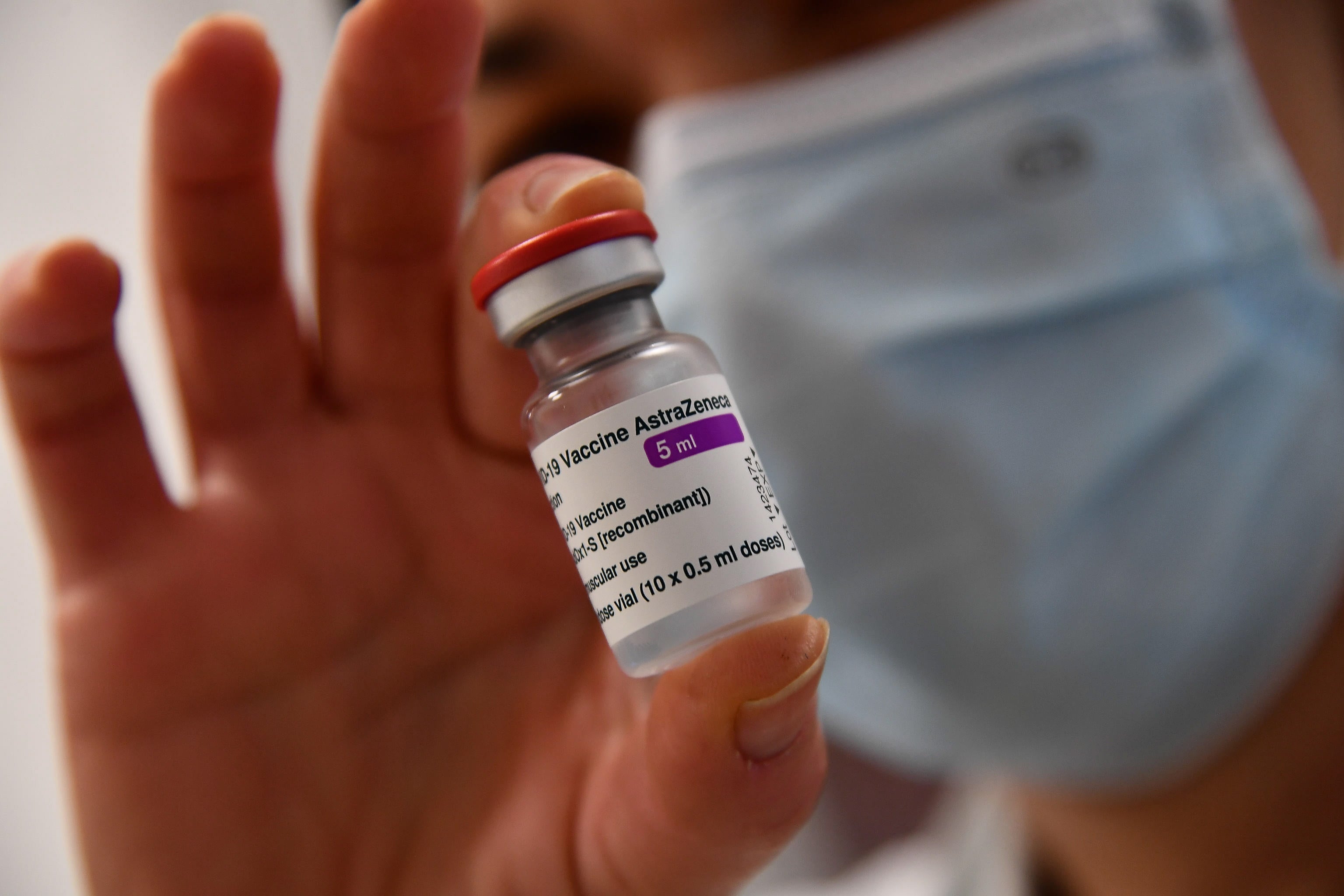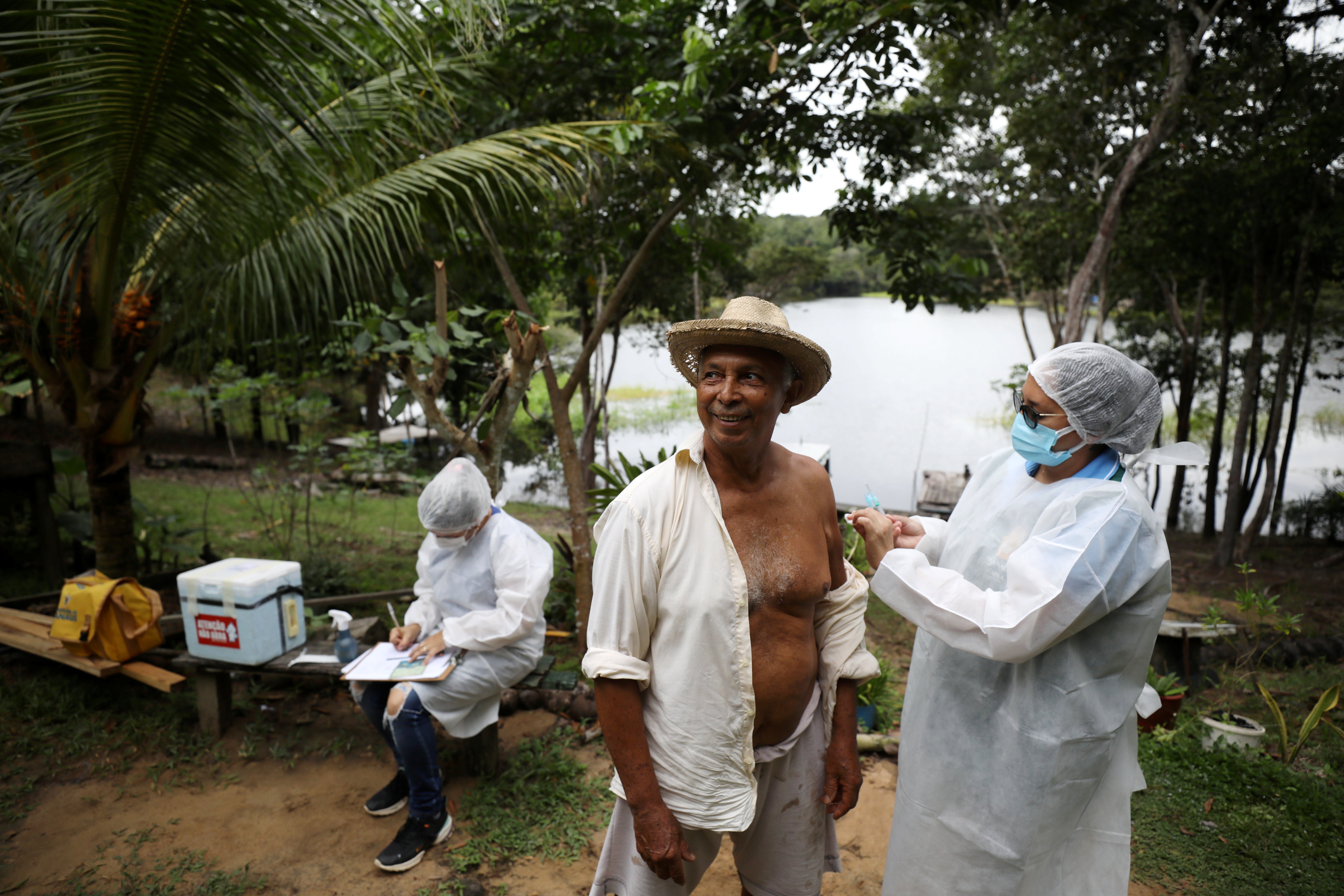WHO recommends Oxford-AstraZeneca Covid vaccine for all adults including over 65s
Guidance comes after several European countries opted to only give jab to younger people

Your support helps us to tell the story
From reproductive rights to climate change to Big Tech, The Independent is on the ground when the story is developing. Whether it's investigating the financials of Elon Musk's pro-Trump PAC or producing our latest documentary, 'The A Word', which shines a light on the American women fighting for reproductive rights, we know how important it is to parse out the facts from the messaging.
At such a critical moment in US history, we need reporters on the ground. Your donation allows us to keep sending journalists to speak to both sides of the story.
The Independent is trusted by Americans across the entire political spectrum. And unlike many other quality news outlets, we choose not to lock Americans out of our reporting and analysis with paywalls. We believe quality journalism should be available to everyone, paid for by those who can afford it.
Your support makes all the difference.Scientists advising the World Health Organisation (WHO) have recommended the use of the Oxford-AstraZeneca Covid-19 vaccine in all adults – including those aged over 65 – after a number of countries opted not to administer the jab to that group.
The WHO’s strategic advisory group of experts (Sage) on immunisation issued interim recommendations on the vaccine, saying the jab could be given to people aged 18 and above “without an upper age limit”.
“That means people over the age of 65 should be given the vaccination,” Dr Alejandro Cravioto, chairman of the advisory group, said.
The guidance comes after a number of countries opted not to give the jab to those over the age of 65.
Across Europe, including in France, Germany and Sweden, the AstraZeneca vaccine is only recommended for use with those under that age. In Spain and others, it is recommended for those under 55.
Spain is to begin administering the AstraZeneca vaccine for essential workers such as police, fire fighters and the military.
However, guidelines published on Wednesday by Spanish health authorities said it should not be given to people over 55 years or those with serious illness, because there is no data to show it works on them.
“We had a long review of the evidence, talked to the experts and the people who are directly involved with a trial,” Dr Cravioto said.
“In the case of the data coming from clinical trials, we have seen that there was a small participation of people over 65 years of age.
“However, the results of the efficacy estimate for persons up to 65 and older, had a wide confidence interval. And therefore we feel that the response of this group cannot be any different to groups that are of a younger age.
“Since we have identified people over 65 as one of our priority groups in the prioritisation roadmap – looking at the safety and immunogenicity data – we recommend for the vaccine to be used in people 18 years and above, without an upper age limit.
“That means people over 65 years of age should be given the vaccination.”
To date, 128 million vaccine doses have been administered globally, although more than three-quarters of those have been administered in 10 of the richest countries in the world.
Almost 130 countries, accounting for 2.5 billion people, are yet to administer a single dose.
The Oxford-AstraZeneca vaccine is seen as particularly important in righting that imbalance since it is relatively cheap and requires less stringent storage conditions.
Katherine O’Brien, director of the Immunisation, Vaccines and Biologicals Programme at the WHO, said: “We have efficacy estimates that confirm there is significant efficacy for those over 65.
“The additional evidence, we are certainly going to look at, but there is urgency to provide recommendations now when these vaccines are available … and ready to be rolled out.
“Some countries may have a choice of products to use and may choose to use different products in different ways … but there is no reason [to delay the rollout of the AstraZeneca vaccine], especially because the over 65s are at the very highest risk of severe disease and death.”
The WHO said Wednesday’s guidance, which recommends an interval of 8 to 12 weeks between the doses, was interim since it was expecting more data from mutiple studies in the coming months.
It says a third, booster dose was not necessary and no severe allergic reactions had been recorded in clinical trials.

South Africa, which had begun a widescale rollout of the Oxford-AstraZeneca vaccine, halted that immunisation programme this week after it said the jab “does not prevent mild to moderate disease” of the new variant that has spread widely in the country.
AstraZeneca is producing the vaccine on a non-profit basis, so does not stand to gain from the rollout.
Shares in the London-listed pharmaceutical company dropped heavily after the announcement, losing 1.3 per cent of their value and wiping around £1.2bn off its stock market valuation in just half an hour.


Join our commenting forum
Join thought-provoking conversations, follow other Independent readers and see their replies
Comments